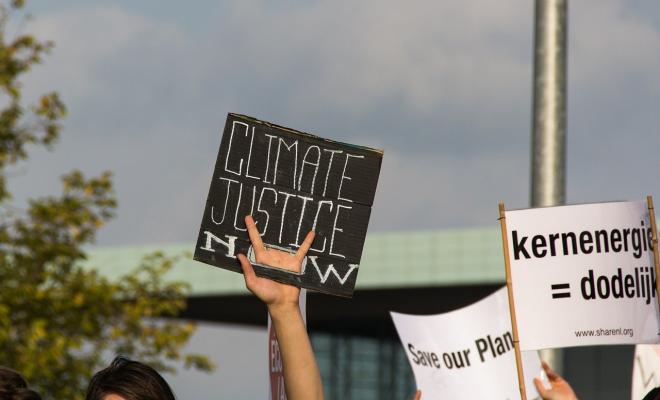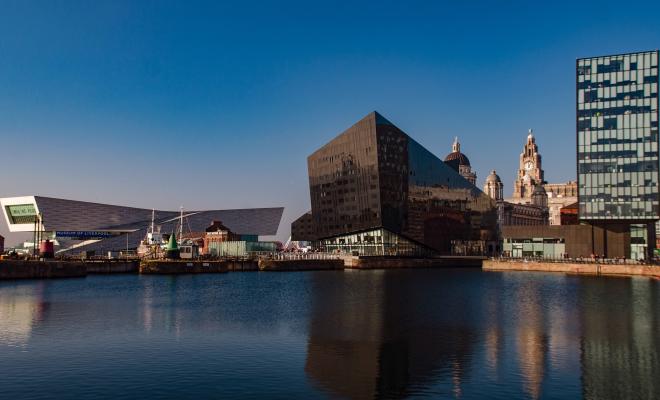20 Sep 2024
How is Action 6 tackling the climate crisis?
Citizens’ assemblies help ordinary people from all backgrounds understand the climate crisis and work together to suggest solutions that can create a better future for everyone. Blaenau Gwent Council in Wales joined forces with local and national organisations, as well as volunteers from the area, to deliver a citizens’ assembly for the relatively small sum of £50,000.
The assembly’s 5 recommendations covered themes across nature, transport, green skills and housing, with all receiving over 80% backing. The recommendations are:
- Establish an affordable, integrated road and rail transport system accessible across Blaenau Gwent.
- Establish and improve a safe, easily maintainable infrastructure for walkers and cyclists.
- Train local tradespeople, create qualifications and upskill local businesses, involving further education colleges and universities, in housing retrofit skills.
- Implement a programme of woodland preservation and reforestation.
- Ensure that all new-build properties are built using the latest sustainable technologies, employ local builders and provide a variety of accommodation types for all.
The assembly process was designed, launched and managed by the Blaenau Gwent Public Service Board Climate Mitigation Steering Group (which has since become the Blaenau Gwent Local Wellbeing Partnership). The group’s members include the council, environmental action groups, housing associations and electoral reform organisations.
The assembly creators worked with the Sortition Foundation, which has expertise in bringing together groups of local people reflecting an area’s different attitudes and social and ethnic backgrounds. The foundation selected a group of 50 assembly members, and in March 2021 these members took part in 23 hours of online climate literacy sessions on key issues like housing, transport and nature.
They were asked to think about how to tackle the climate crisis in a way that’s fair and improves living standards for everyone. The members debated and agreed on 5 key proposals that the council and others should adopt to tackle the climate crisis.
What impact has the project had?
Although the assembly’s recommendations aren't legally binding, Blaenau Gwent Local Wellbeing Partnership has committed to respond to all recommendations. At the end of the process, 3 assembly members took part in public service board meetings, discussing how their work could form the basis of future policy plans. In 2022, the partner organisations converted the recommendations into specific actions and outlined them in a publicly available document, laying the foundations for work in the coming years.
The citizens’ assembly has led to a shift in the council’s internal culture, shaping how it approaches local emissions. When considering anything climate-related, elected members and officers always first refer back to the assembly’s recommendations. The themes endorsed by the assembly help focus the council’s own strategic thinking.
"The people at the Climate Assembly were passionate about our environment and their recommendations will help to focus our minds even further on tackling this issue."
Cllr Dai Davies, Deputy Leader and Executive Member for Regeneration & Economic Development.
A review of the condition of active travel routes in Blaenau Gwent has been conducted, and the council is looking at increasing the active travel maintenance budget so that it’s comparable to the (much higher) maintenance budget spent on roads for cars.
Blaenau Gwent has also signed up to the Local Climate Bond Pledge to raise funds for climate action. Money raised via the bond will be used to fund renewable energy. The idea of a climate bond funding green energy was considered by the citizens' assembly and received 79% approval, just 1% shy of becoming one of the 5 recommendations.
What made this work?
The Blaenau Gwent Local Wellbeing Partnership was well-placed to develop a strategy and process that included key local stakeholders. As well as helping assembly members engage with the climate crisis, the group also made sure the assembly’s recommendations could be used by Blaenau Gwent public bodies in their decarbonisation plans.
The stakeholders included 4 housing associations, United Welsh, Tai Calon, Linc Cymru and Melin Homes, that between them control 24% of housing in the area.
There was council-wide buy-in to support this project. This was crucial, as political will is needed to make sure that a citizens' assembly can be delivered through a fair process that sparks real change.
What resources were needed?
The citizens’ assembly was funded through the Welsh Government’s Optimised Retrofit Programme, part of its Innovative Housing Programme, with the project costing £50,000 in total. This is a relatively low amount for a citizens’ assembly, and volunteers were needed to support or carry out almost every role in the process.
Up to 8 council staff members were needed to run the assembly sessions, with local housing association staff also involved. The housing associations also played a key role here in securing the initial funding to deliver this project.
Lessons from Blaenau Gwent
Consider capacity
The council found it challenging to complete this work within the budget, which limited its capacity to make the sessions as engaging as possible. As a result, some people taking part said they felt rushed during the learning, deliberation and recommendation phases of the assembly. If the council was to run an assembly again, it would create more time for people to take on board information on specific themes.
Running the assembly was a tough administrative challenge. Creating a design team, as well as appointing project managers, would have helped.
Focus on the local
To make citizens’ recommendations deliverable, keep the discussion focused on the local areas the council and its partners have the ability to change.
Co-benefits can convince sceptics
Blaenau Gwent’s assembly comprised a representative sample of citizens, including some climate sceptics and many who were only “vaguely concerned” about climate issues. Yet a high level of agreement was achieved because of the co-benefits linked with climate action, including greater access to nature and economic opportunities. Citizens, even climate sceptics, are more receptive to solutions that bring tangible local benefits.
Remember GDPR
A learning point for Blaenau Gwent was that, to remain in long-term contact with the 50 citizens after the assembly was over, it needed to confirm permission to use contact details. Councils need to receive this consent at the beginning of the process, rather than at the end.
"We are delighted to have been involved in Wales’ first climate assembly. It shows it is possible to bring a representative sample of people together – and address one of the toughest challenges facing us all – the climate crisis. The climate assembly process is one that is respectful of different opinions and builds trust. The top 5 recommendations had overwhelming 80% support from members. This gives these recommendations a weight and credibility that is hard to ignore."
Steve Cranston, Foundational Economy Lead at United Welsh Housing.
Useful information
Related projects
We've found other examples of councils engaging their communities on climate action.
- Hounslow Council set up a Green Recovery Board to ensure a collaborative approach.
- Leeds City Council used a range of methods to engage people in its carbon neutral plan.
Friends of the Earth's view
It’s great that Blaenau Gwent put community engagement at the heart of its plans to tackle climate change, and that this has given the council more impetus to tackle the issues locally.
It’s also good to see some momentum continuing, including via the climate bond scheme. Hopefully the council will find ways to continue engaging with local people, as listening to the community on climate isn’t a one-off exercise.
All councils should consider how to make sure that the voices of the most vulnerable communities in their areas are heard and prioritised, as covered in Action 12 of the Climate Action Plan for Councils.
Friends of the Earth is showcasing specific examples of good practice in tackling climate change, but that doesn’t mean we endorse everything that a council is doing.
This case study was produced by Ashden and Friends of the Earth. It was originally published in March 2022 and was last updated in July 2023. Any references to national policy in this case study relate to policy under the previous government and reflect the policy context in which the council was operating at the time.





